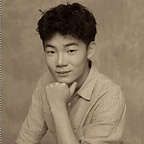Iphigenia | hush
They say I must die.
King Agamemnon offends the goddess Artemis on his way to the Trojan War by hunting and killing one of her sacred stags. The goddess retaliates by preventing the Greek troops from reaching Troy unless Agamemnon kills his eldest daughter at Aulis as a human sacrifice.
They say I must die. They say that Father had stolen Artemis’ prize, and now she must steal his. I can imagine the temple at Aulis; its pale marble colonnades wreathed in sacred fire; its deep corridors hollow and anticipatory like the eyes of the dead. I dream of this place and I feel a chill. I hug my knees and struggle to hold back my tears. So I will be led to the the altar, bone-white against the distant glimmering sea. I want to scream. I feel my heart racing. In a clamour of bronze my breath will whistle in the wind and vanish silently into the night. I will leave no traces. Oh, I fear. I fear. I fear. And I start from my bed in the middle of the night, dressed all in white.
They say an offering to the gods must be free of mortal strife. So they brought me here, to the depths of the temple at Aulis. Here, in an antechamber beyond the main gallery, lives a monster kept under the strictest surveillance. Titanic. Heaving with rage. Piteously mauled. It was a fleshy mass that loomed at the dais. It had a name, but they call her Iphigenia — the strong-willed.
What Iphigenia really was eluded me at first. She was constantly changing. Wings and tentacles, scales and hair. Why not kill her? I ask. But they only laugh. For my remaining days I am confined with this monster. This howling beast. At night I hear her gurgling and screeching, clawing at her shackles as if her very life was at stake. At times she glares at me from her myriad, blinking eyes — large irises embedded with smaller irises. Eyes within eyes. But I never felt afraid — I couldn’t feel many things anymore, anyway.
I am still welcome at father’s table, even though I could never understand their conversations. They forget that I am young. I catch hushed whispers beneath the clamour of jugs and jewellery. I do not speak.
Now I am only welcome with the soldiers. At supper, one of them hands me a waterfowl, freshly snared. Kill it. He says with a chuckle, and sits back to watch my reaction. They observe me curiously, like a creature in a cage. And my hands snap its slender neck, and I sear the feathers without hesitation. I follow their eyes. I see my wine-red fingers. I wipe my sticky hands against my legs. By the Gods. I hear them mutter. But I can feel nothing.
All begin to shun me. They take away my old clothes, my ornaments. There is no trace of Mycenae left with me — I cannot remember clearly, anything outside of this room in this temple at Aulis. They do not take away Iphigenia, however. That treacherous beast has almost become familiar to me. They say that I am doing very well. They tell me that I must wait in reticence here. Now I eat alone.
A messenger tells me that Mother has died. I blink at this news. He sees me and takes pity. He asks if I feel sad. And my mind clambers to preen my memories — I try to recall what it might have felt like to feel ‘sad’. But I find nothing. I could not tell what I looked like in that moment. But as I tried so desperately to recall that experience of feeling, the messenger’s face turns unspeakably pale. Monster. He whispers. You are a monster.
And King Agamemnon — my Father — appears behind him. He places a firm hand on the messenger’s shoulder. I study the two men in silence.
Iphagenia wails behind me, her lacerated monstrous body contorting in unspeakable positions. This seems to capture Agamemnon’s attention. He dismisses the messenger. He takes a step toward me. He offers me an embrace with open arms, and smiles.
“Oh my sweet girl, my daughter — what is your name?”
In that moment I can hear my breathing. I think, but cannot recall what my name was. Did I once have a name? Did I once feel ‘sad’? I cannot answer. But this does not frustrate me. I am in cadence with my silence. I do not embrace the man before me.
Iphigenia begins to shriek. The noises become contorted, turn violent. Her body twists and strains. Agamemnon is silent now. I surveil his face but cannot identify anything. His smile grows wider as he cups his hand to the heavens, and exclaims in a gesture of supplication:
“Blessings — ! Blessings — !”
And he casts his eye upon me — no — upon the shackled monster behind me.
“May you witness the ultimate end.”
But the young Iphigenia stood beside her father who had given her life and said: ‘Fathers, as you bid me, I am here. I give my body, freely on behalf of my country, for all the land of Greece. Lead me to the altar. There, if that is the gods’ will, sacrifice me. May this gift from me bring you success. May you win the crown of victory and win thereafter a glorious homecoming. And no, do not let any man lay his hands upon me. In peace and in good heart I offer you my throat.’
